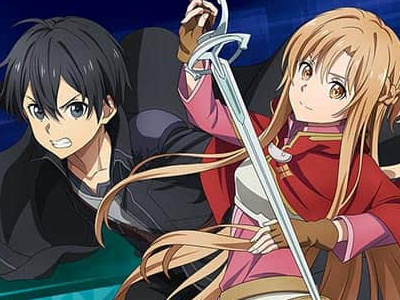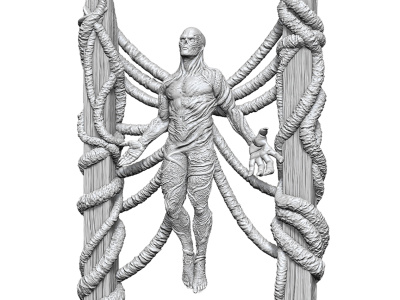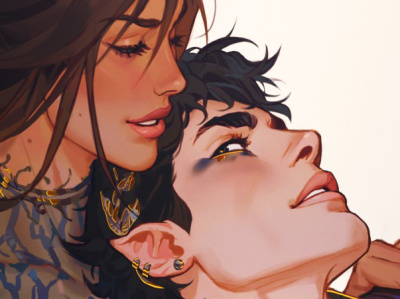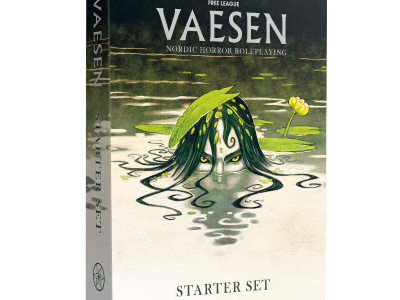 ICv2 had a chance to sit down with Wizards of the Coast CEO Greg Leeds last month for a wide-ranging conversation. In Part 1, we talked about WotC’s strategy for retailers, and in Part 2, we talk about getting product ideas from fans, media development of WotC properties, plans for Dungeons & Dragons and board games, and the top upcoming WotC products.
ICv2 had a chance to sit down with Wizards of the Coast CEO Greg Leeds last month for a wide-ranging conversation. In Part 1, we talked about WotC’s strategy for retailers, and in Part 2, we talk about getting product ideas from fans, media development of WotC properties, plans for Dungeons & Dragons and board games, and the top upcoming WotC products.Tell us a little about the digital side of gaming at Wizards of the Coast.
Our philosophy on digital gaming is to make sure that everything we do enhances the analog side of gaming. If you look at what we have done with Duels of the Planeswalkers, we have made sure that anyone who gets into our brand, with Duels of the Planeswalkers, let’s say on X-box, then gets driven back to the stores where they can be a part of the gaming community that’s so important to their experience. For us, digital gaming is never an end in itself, and is never an experience in itself. What makes gaming great is the fact that you can get together with your friends and have that experience that goes well beyond whether you have won or lost on this particular evening.
What can you tell us about the Magic Celebration and how that worked?
Let me step back and say something on the Magic Core Set 2012. Magic Core Set 2012 is a continued evolution of combining our digital and paper experiences. We started doing that last year with our Core Set 2011. This year, with 2012, what we have done is integrate the experiences even more closely. With Duels of the Planewalkers 2012, for example, we spoil cards that will be coming out in the Core Set. So it creates early interest in the digital experience, but the digital experience by its very nature is somewhat limited in terms of the way you can play. You don’t have the endless opportunities for customization that you do with the paper game. So we try to get people excited about Duels of the Planeswalkers, and try to get people interested in the brand. We know that people will naturally go to their local hobby store and purchase Magic and get involved in their community from there.
Celebration ties a bow around the digital and analog experiences and shows how the products can be played together in a way that suits the Magic player at the time they are interested in playing.
There has been a two-year trend of trying to bring Magic Organized Play more into the stores instead of external venues; the most recent example would be moving the National Qualifiers. Tell us about the reason behind that strategy and what the player response has been.
For the past few years we have been focusing on making sure that the hobby gaming retail industry is as financially healthy as it possibly can be, because we know that the Magic community is generated in stores. It’s generated by people who are passionate about games, who can share their knowledge about games and share that habit of getting together on a regular basis and playing games. The decisions we have made, including our most recent decisions on the Pro Tour Qualifiers have to do with getting people into stores where they can spend their money and help the retailer, so the retailers can invest back in creating the community.
We’ve done this over a number of years, with a number of different decisions. On Internet policy for example, where you have to have a brick and mortar store to be able to be an authorized Internet retailer for our business. We have done it through some of the regional events. We have set up our WPN: the Wizard Play Network, such that the stores will run the events.
We often in our own offices say that the events are now “in store,” but honestly that’s not the critical factor for us. We have many store owners that run huge events outside their stores because at certain times it’s just impractical to have the play space. For us it’s more about making sure that the people who build the Magic and D&D community have the greatest financial resources to continue doing that. Whether they run the events in store or out of store doesn’t matter to us.
Having said all that, we do have Grand Prix events (which by the way we are having more and more of and are very important to our success), often run by store owners, but sometimes by the old fashioned Professional Tournament Organizers. So it’s not like we completely eliminated the relationship with those people that run events. But we are continually trying to make sure that stores get the greatest reward for the investment they put into the community.
What are the results of that multi-year strategy?
Over-all our business is up significantly. I think anyone you talk to about what’s going on with Magic and D&D will tell you that we are having very, very strong sales. We are having very strong sales in digital, and we’re having strong sales in mass market, but our strongest sales are in the hobby shops. So that’s working. The best evidence of this is if you just talk to retailers about the last couple of years, the number of players that have been playing Magic and D&D, with a program like D&D Encounters, which is just completing its second season, the numbers are not falling off at all in terms of participation. When you come to a place like Gen Con you can see that there are so many people interested in getting together and finding like-minded D&D players. They love getting together. Now it’s happening in stores every Wednesday night on a regular basis. We are continuing to invest in great D&D content--the kind of content that gets someone not only to play D&D but also to go on Wednesday night to their local store and play with their friends.
So, has the number of locations running events grown?
(Wizards of the Coast Vice President of Sales Scott Knoblich jumped in here.) Locations have grown a lot, but events in stores have doubled what location growth has been, and likewise participants (those are the people actually playing in events) have quantifiably grown double what our location growth has been.
(Leeds)The most important part for us in making stores successful is working with the stores to do what they do best, which is create great player experiences. What we’ve seen, and from your own publication, just think about how the retailers talk about their stores and how professional they are and how disciplined they are. It’s been a long, long-term trend; this isn’t something where a corner has just been turned. Over time stores have recognized that to compete in the leisure and entertainment industry they have to up their game and put on an experience that is not like the stereotypical hobby game store experience of the past. It’s something that would rival anything else a customer could do on a Wednesday night or Friday night. And stores are stepping up and doing this in ways you wouldn’t believe.
There’s a store in Seattle, Card Kingdom, that has for me probably the best experience for a gamer that I’ve seen: the rooms, the decorations... They don’t have snacks; they have a full functioning restaurant and bar which is super busy at night. They have a singles card operation for Magic like you have never seen in your life. They have D&D; they have miniature painting; they have the whole program. It’s a massive store. And what’s happened is... it’s working. Obviously it requires a massive amount of investment for the retrofit and the lease, but at the same time they are getting their payback. And there are other stores around the country and around the world that are doing the exact same thing: they are taking the money they are making in Magic, and reinvesting it back into the store to improve the player experience. If they improve the player experience it’s easier to attract more customers and customers who weren’t previously gamers and might have in the past, been turned off by that stereotypical gaming experience. Now they are opting to play a Friday night draft instead of going to a movie. It’s working for the stores.
Click here for Part 2.







